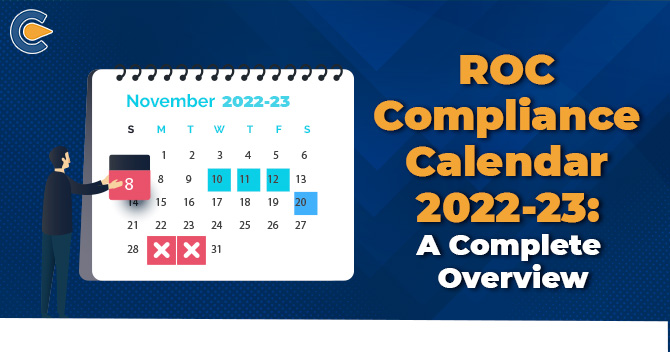Borrowing funds are an essential reservoir for a corporation to raise funds for financing large-scale projects and extending its business. Corporate borrowings comprise loans obtained by a registered company by way of forming a charge on its assets as security to the lender company. As defined in the Companies Act, 2013[1], “charge” means an interest created on the property of a company or any of its security. According to Section 77(1) of the Act, it is the obligation of every corporation creating a charge within or outside the country, on its property or assets. The provisions of Section 77 of the Act relating to registration of charge shall be applicable to a corporation obtaining any property subject to a charge within the meaning of that section.
Form and Manner of Registration of Charge
The process of registration of a charge along with the instrument creating a charge, with the Registrar of Companies within the period prescribed in Section 77(1) of the Act.
However, in the case of omission to file the particulars within the directed period, the company can get the charge registered by seeking condonation from the Central Government.
This is also known as “rectification of the register of charges”.
The application for registration of charge is to be submitted to the Registrar of Companies in such form as directed in the Companies (Registration of Charge) Rules, 2014.
Under section 77(1), 78 and 79 of the Act, the particulars of the charge shall be filed with the Registrar of Companies within thirty days of the date of creation along with the fee, in Form No.CHG-1 or Form No.CHG-9 (for debentures).
Read our article:Conversion of Dormant Company into Active Company
Extension of Time for Registration of Charge
The provision to Section 77(1) supports the extension of time for filing details for registration of charge. It is stated within, that the Registrar of Companies may grant such registration to be made within three hundred days of such creation.
According to Rule 4, Form No.CHG-1 acts as an application for the delay and supported by a statement from the organisation signed by its secretary or director.
However, if things don’t go as per law, then the company shall seek an extension of time for for the registration of the charge from the Central Government (in eForm CHG-8). The eForm CHG-1 will be concocted by the Registrar of Companies office after the order of Central Government.
The Central Government, on the other hand, can provide the extension of time on the ground that the omission to file with the Registrar of Companies.
The petitioners were under the idea that respondents have registered the particulars of charges, but according to Registrar of Companies, it was found that the purpose was not filled. However, despite the petitioners requesting the respondents to cause the registration of the charges, the respondents did not affect the registration of the charges, and therefore, the petitioners filed the said petition, which, if allowed would not cause prejudice to any stakeholder or the respondents, including the creditors.
It was believed that in these situations, the delay in filing of the particulars of the charges be disregarded and time be increased for filing such particulars. In the said case, the applicants pointed out that the lag was due to a sufficient cause and hence, an extension of time was awarded for filing particulars of the charge.
What is the Effect of Non-Registration of Charge? – Penalty Provisions
Section 77(3) of the Act affirms that in case a charge is not registered then the charge shall not be taken into account by any creditor or liquidator. Section 86 of the Act provides for penalty for violations of Section 77 of the Act.
The company shall be subject to a fine of one lakh to ten lakh rupees and every officer of the organisation who is in defaulter shall be punishable with imprisonment.
Hence, an application must be delivered for registration of charges to the Registrar of Companies in the designated format so that the concerned authority can issue a certificate of registration of charge and entitle the company to rights at the time of liquidation.
Conclusion
Conducting a fair business practice in India is not an easy job. There are tons of paperwork that is required that go along with the corporate laws. Hopefully, this article has ramped up your understanding regarding the application for registration of charge. We will keep coming up with informative contents down the line. So stay tuned.
Read our article:Annual Compliance of a Public Limited Company: Rules and Procedures











